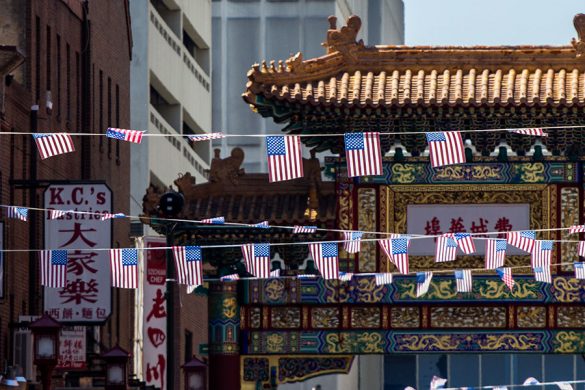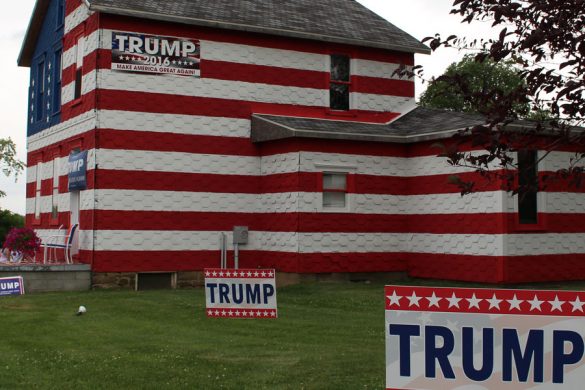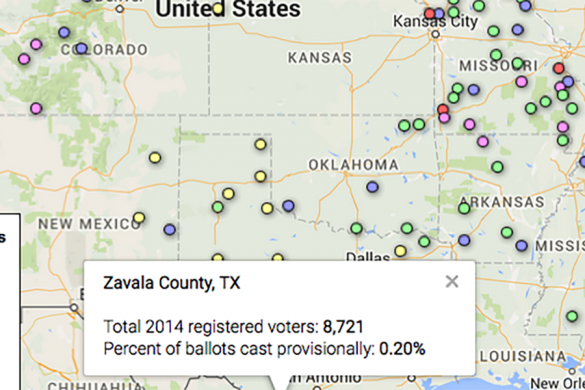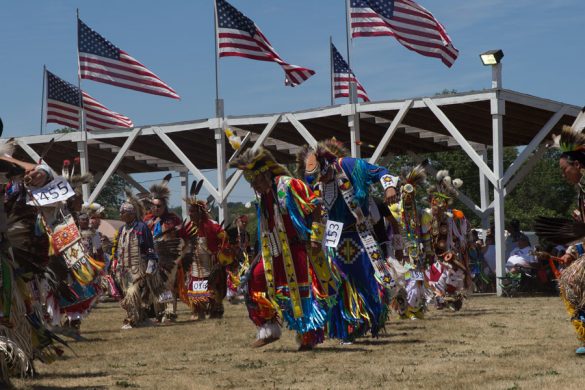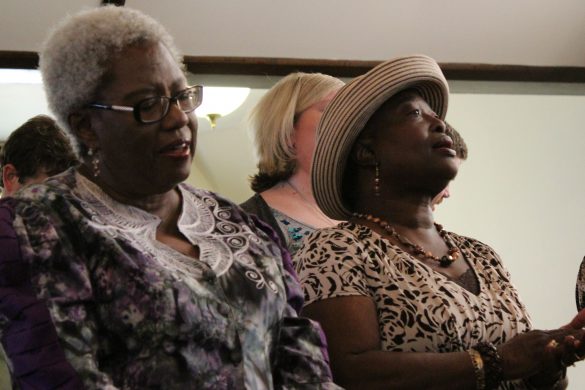GALLUP, N.M. – It wasn’t long ago that Native Americans in New Mexico didn’t have the right to vote or the ability to run for office. Now, Native Americans have greater representation among elected officials there than in most states.
Congress extended citizenship and voting rights to all Native Americans in 1924. However, states still retained the ability to define voter eligibility. In 1962, New Mexico was the last state to grant Native Americans the right to vote.
Currently, Native Americans make up more than 10 percent of the population in New Mexico, according the U.S. Census Bureau. That means they have the ability to impact election outcomes because of their concentration within certain areas in the state, according to Daniel C. McCool, a professor at the University of Utah who studies lawsuits involving Native Americans.
News21 traveled through New Mexico and spoke to tribal members about voting. Here are some of their responses:
Gloria Skeet
“When they talk about minorities, it seems to me it’s Hispanic and black or just black and white, and Native Americans are left out a lot,” said Gloria Skeet, who manages the chapter house at Bááháálí on the Navajo reservation south of Gallup.
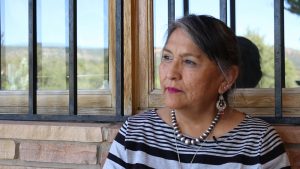
Gloria Skeet outside the Bááháálí chapter house. (Mike Lakusiak/News21)
“We’re here. We’re real. And we’re here to stay,” Skeet said. “I think that a lot of the general population … think that Indians don’t exist, that we are all dead and we’re just history.”
Skeet sits on the front porch of the Bááháálí chapter house. She explained that she wasn’t as always connected to her culture and life on the reservation as she is now.
She, like many young Native Americans, left the reservation when she had the opportunity. She attended college in Minnesota.
“I grew up with no running water, no electricity, and I went to college. I was determined to finish college and, of course, my goal when I went to Minnesota was to get the hell out of here,” she said.
As the years passed, she grew homesick for the culture and community she left behind.
“I started to really miss hearing Navajo, and I missed a lot of the culture that I grew up with,” Skeet said. “When you grow up with Navajo values and the Navajo way of life, it never leaves you.”
Now she encourages young members of the chapter to become civically engaged and learn traditions through youth employment programs and a weaving program at the chapter house.
Jess Kirwin
Jess Kirwin, who has served as chapter president in the Navajo Nation’s McKinley County chapters, said older residents on the Navajo reservation often face hurdles casting their ballot in person. Members of the community go to great lengths to help, he said.
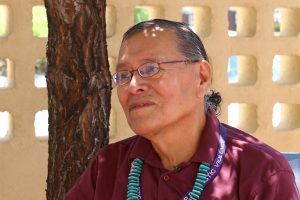
Jess Kirwin, who has been a chapter president on the Navajo Nation in New Mexico explained that tribal members ensure everyone can access polls. (Mike Lakusiak/News21)
“We have handicapped individuals, and I know our voting precinct workers there are very generous to go out to the automobile where grandma is sitting, make her vote in the vehicle and then they bring it back in and count her,” Kirwin said.
Amanda Henry
In the center of Gallup, Amanda Henry plays with her young daughter on the playground at Ford Canyon Park. She’s from the Naschitti Chapter in Tohatchi, New Mexico, and is both Navajo and Cherokee.
Henry filled out all the registration forms before the primary election, but she said that when she went to the local fire station to vote early, workers couldn’t find her in the system.
She plans to try and vote again in November. Henry said voting is about providing a better future for her daughter.
“I just I want equal rights for her,” she said. “I just want everything to be OK for her and for her not to be judged or to be looked down on.”
“Being minorities and Native American, it’s really hard to make something of yourself, and I don’t want things to be harder for her.”
Come back Aug. 20 to see the full News21 report on “Voting Wars.”
